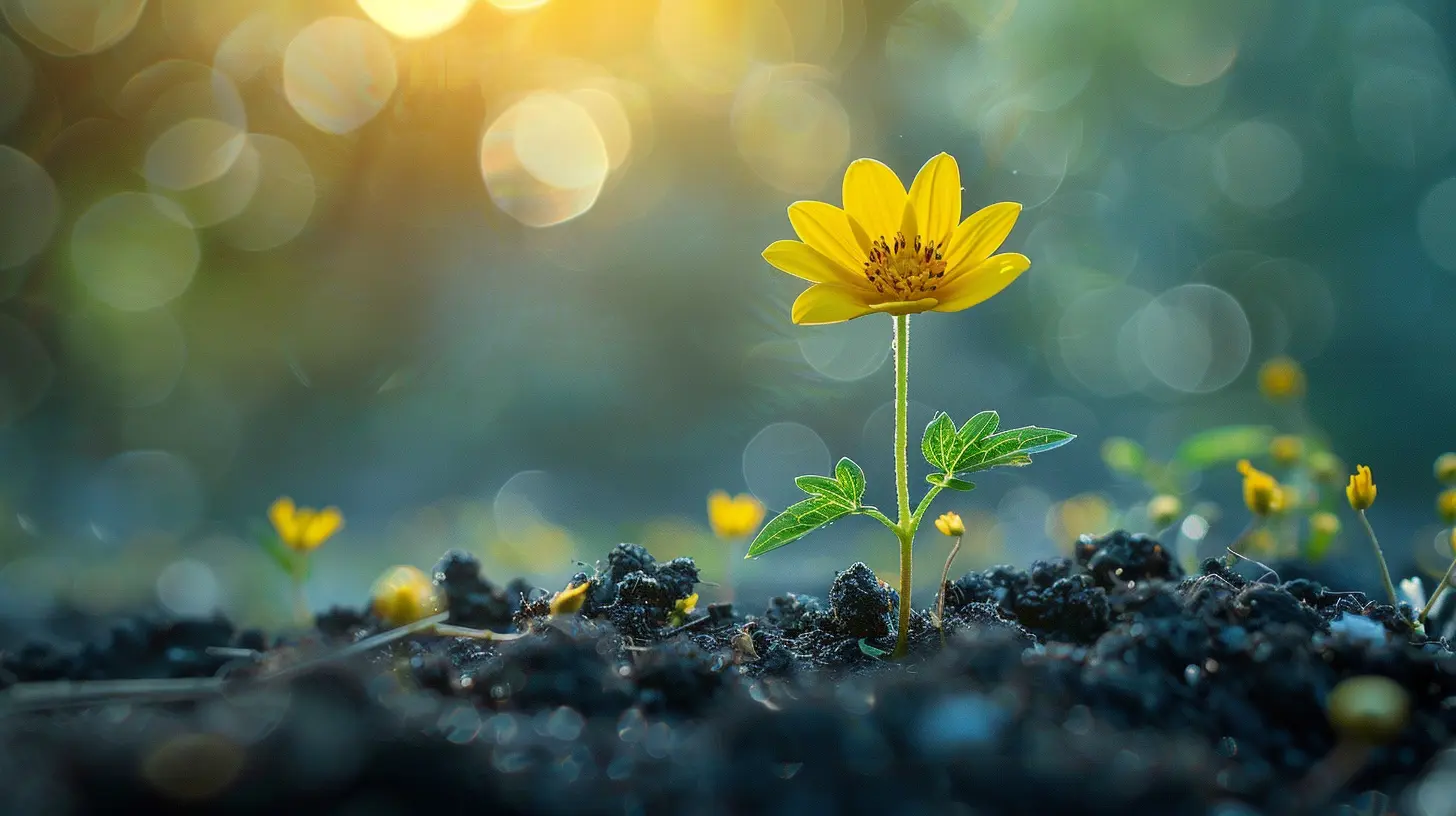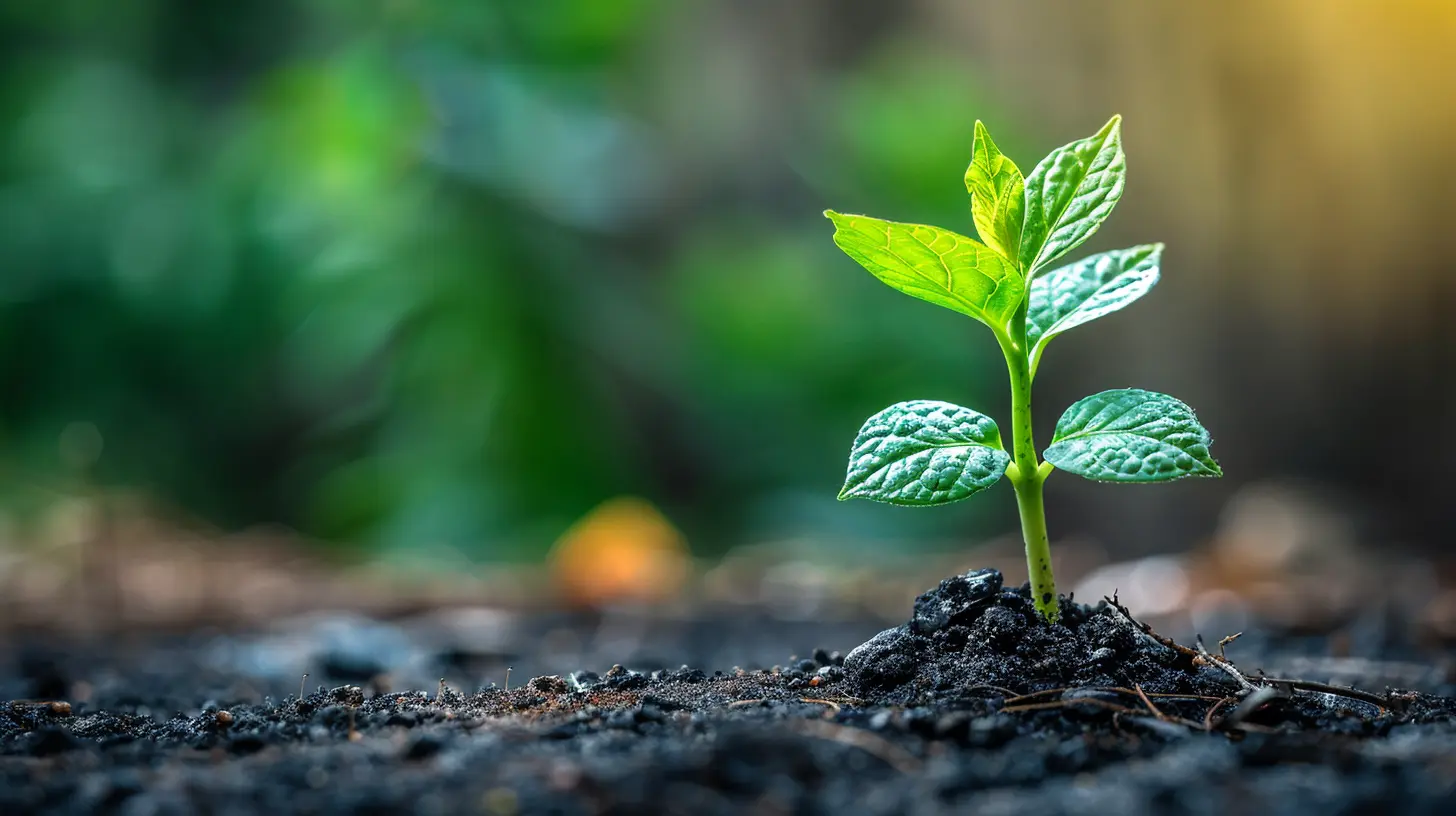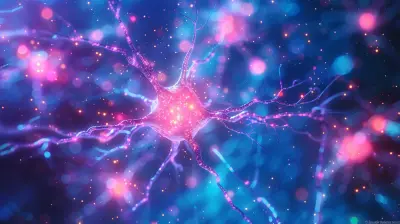How to Foster a Growth Mindset
22 August 2025
Have you ever felt stuck, like no matter how hard you try, you're just not good at something? If so, you're not alone. But what if I told you that the way you think about challenges could completely change your potential for success? That’s where a growth mindset comes in.
A growth mindset isn't just a trendy phrase—it’s a powerful way of thinking that can transform how you learn, grow, and approach life. In this article, we’ll break down what a growth mindset is, why it matters, and, most importantly, how you can start developing one today.

What is a Growth Mindset?
A growth mindset, a concept developed by psychologist Carol Dweck, is the belief that abilities and intelligence can be developed with effort, learning, and persistence. It contrasts with a fixed mindset, where people believe their talents and intelligence are static—they either have them or they don’t.Imagine your brain as a muscle. The more you challenge it, the stronger it gets. People with a growth mindset embrace challenges, see failure as a learning opportunity, and persist through difficulties. On the other hand, those with a fixed mindset tend to avoid challenges for fear of failure, often giving up when things get tough.
So, how do you make the shift from a fixed to a growth mindset? Let’s dive into practical steps!

1. Recognize and Challenge Your Fixed Mindset
The first step towards developing a growth mindset is recognizing when you're stuck in a fixed one. We all have moments where we think, "I'm just not good at this" or "I’ll never understand this topic." These thoughts are the voice of a fixed mindset.Whenever you catch yourself having one of these thoughts, challenge it. Ask yourself:
- Is this really true, or is it just my perception?
- Have I given myself enough time and effort to improve?
- What can I learn from this experience?
Simply becoming aware of these limiting beliefs can help you start reshaping them into more constructive thoughts.

2. Embrace Challenges Instead of Avoiding Them
People with a growth mindset actively seek challenges because they see them as opportunities to grow. Instead of running from things that seem difficult, try embracing them.Think of it like leveling up in a video game. If you only played easy levels, you'd never improve. The tough levels may be frustrating at first, but once you master them, your skills reach a new level.
Next time you're faced with a challenge, reframe it: Instead of saying "This is too hard," try saying "This is tough, but I can figure it out."

3. View Failures as Learning Opportunities
Let’s be real—nobody enjoys failing. But failure is an essential part of the learning process. The most successful people in the world failed countless times before they succeeded.- Thomas Edison failed over 1,000 times before inventing the light bulb.
- Michael Jordan didn’t make his high school basketball team.
- Oprah Winfrey was fired from her first job as a news anchor.
What do these people have in common? They didn’t let failure define them. Instead, they used it as fuel for growth. When you fail, ask yourself:
- What went wrong, and what can I learn from this?
- How can I improve next time?
- What skills do I need to develop to do better?
When failure is seen as feedback instead of defeat, it becomes a stepping stone to success.
4. Develop a Love for Learning
A growth mindset thrives on continuous learning. People with this mindset see knowledge as an endless journey rather than a destination. Even if you're skilled at something, there's always room for improvement.Try these strategies to foster a love for learning:
- Read books on topics that challenge your thinking.
- Take online courses or attend workshops.
- Surround yourself with people who inspire and push you to grow.
- Seek feedback from mentors or colleagues.
By keeping an open mind and staying curious, you make growth a lifelong habit.
5. Adopt the Power of "Yet"
One simple yet powerful way to shift your mindset is by using the word "yet."Instead of saying:
❌ "I can’t do this."
Try:
✅ "I can’t do this yet."
That small change in language reinforces the idea that your abilities are evolving. You’re not stuck where you are—you’re in the process of improving.
6. Surround Yourself with Growth-Oriented People
Have you ever noticed how the people around you influence your mindset? If you're constantly surrounded by negativity or people who believe in limitations, it's easy to adopt the same mindset.Seek out individuals who encourage growth, take risks, and embrace learning. Whether it’s colleagues, friends, or mentors—being around the right people can push you to develop a stronger growth mindset.
7. Set Goals and Track Your Progress
Having clear goals can motivate you to stay on your growth journey. Set specific, achievable goals that challenge you while keeping you motivated.For example, instead of saying:
- "I want to be better at public speaking,"
Try:
- "I will practice public speaking once a week and record myself to track improvement."
Measuring progress helps you see how far you've come and keeps you motivated to keep going.
8. Celebrate Effort, Not Just Results
One of the biggest shifts in a growth mindset is focusing on effort over outcomes. Instead of only celebrating success, recognize the hard work that goes into improvement.For example, if you're learning a new skill, praise yourself for putting in the time and effort, even if the progress is slow. Rewarding effort reinforces the idea that growth happens through consistent dedication, not just quick wins.
9. Step Outside Your Comfort Zone
Growth doesn’t happen in comfort zones. If you always stick to what feels safe and familiar, you limit your potential.Try exposing yourself to new experiences and challenges:
- Take on tasks that scare you a little.
- Try new hobbies or skills.
- Speak up in meetings even if you're nervous.
Each time you push past your comfort zone, you strengthen your ability to embrace challenges and adapt to change.
10. Be Patient with Yourself
Lastly, growth takes time. You won’t wake up tomorrow with a completely transformed mindset, and that’s okay. The key is consistent effort and self-compassion.Whenever you feel frustrated, remind yourself: "I'm making progress. It’s okay to struggle. Every challenge is a learning opportunity."
Final Thoughts
Fostering a growth mindset isn’t about being perfect—it’s about being open to learning, improving, and embracing challenges. The way you think directly impacts what you can achieve, so why limit yourself?Every great athlete, scientist, artist, and leader started somewhere. They weren’t born experts—they grew into their success through hard work and persistence. And guess what? You can, too.
So, are you ready to shift your mindset and unlock your full potential? The journey starts today.
all images in this post were generated using AI tools
Category:
PsychologyAuthor:

Eliana Burton
Discussion
rate this article
1 comments
Grayson Allen
Nurture curiosity’s flame, let challenges dance; in every stumble, discover your brilliance’s chance.
September 14, 2025 at 3:10 AM

Eliana Burton
Thank you! Embracing curiosity and challenges is key to cultivating a growth mindset. Each stumble truly reveals our potential.


